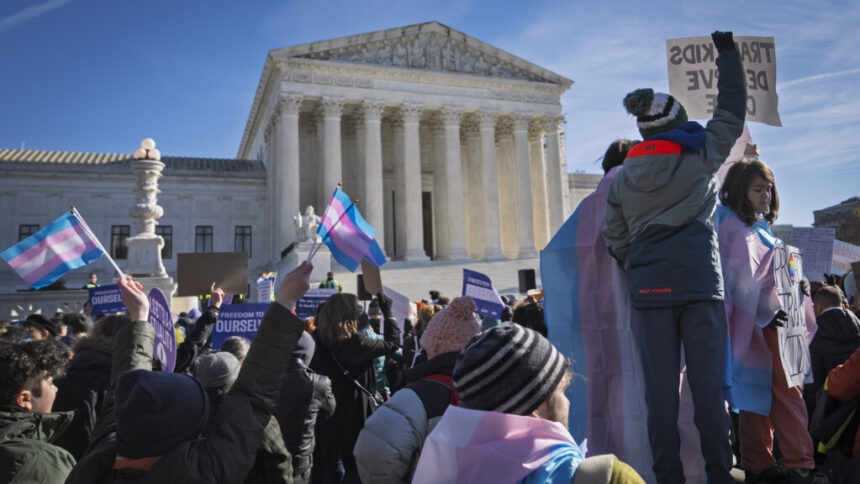As hospitals in Colorado, Virginia, and Washington, D.C. pause gender-affirming care for young people in response to President Donald Trump’s executive order, the landscape of healthcare for transgender individuals is facing a challenging shift. Denver Health in Colorado has halted gender-affirming surgeries for individuals under the age of 19 to comply with the order and maintain federal funding. The extent to which other gender-affirming care services, such as hormone therapy and puberty blockers, will be affected remains uncertain.
Similarly, VCU Health and Children’s Hospital of Richmond in Virginia have suspended gender-affirming medication and surgical procedures for individuals under 19 years old. In Washington, D.C., Children’s National Hospital has paused prescriptions of puberty blockers and hormone therapy while further assessing the situation. The hospital already refrains from performing gender-affirming surgery on minors.
President Trump’s executive order, aimed at reducing federal support for gender-affirming care, has raised concerns within the healthcare community. The order directs agencies to ensure that hospitals receiving federal grants cease what it refers to as the “chemical and surgical mutilation of children.” This language starkly contrasts with the standard practices of gender-affirming care in the United States and dismisses guidance from the World Professional Association for Transgender Health as “junk science.”
While some hospitals have paused certain services, others, like Lurie Children’s Hospital of Chicago, are reviewing the order to assess potential impacts on their clinical services. The hospital emphasized the importance of advocating for access to medically necessary care based on scientific evidence and compassion for their patients.
The implications of Trump’s order extend beyond medical procedures to the mental health and well-being of transgender individuals. Denver Health expressed concern for the mental health of their transgender patients under 19 and affirmed their commitment to providing primary and behavioral healthcare services.
Gender-affirming medical care for transgender youth remains uncommon in the United States. A recent study revealed that fewer than 1 in 1,000 U.S. adolescents with commercial insurance received puberty blockers or hormones over a five-year period. Additionally, the majority of gender-affirming surgeries are not performed on individuals under 19.
As the healthcare community navigates the impact of Trump’s executive order, organizations like the World Professional Association for Transgender Health stress the harmful effects of restricting access to necessary medical care for transgender youth. The ongoing debate surrounding gender-affirming care underscores the importance of providing inclusive and compassionate healthcare services for all individuals, regardless of their gender identity.








